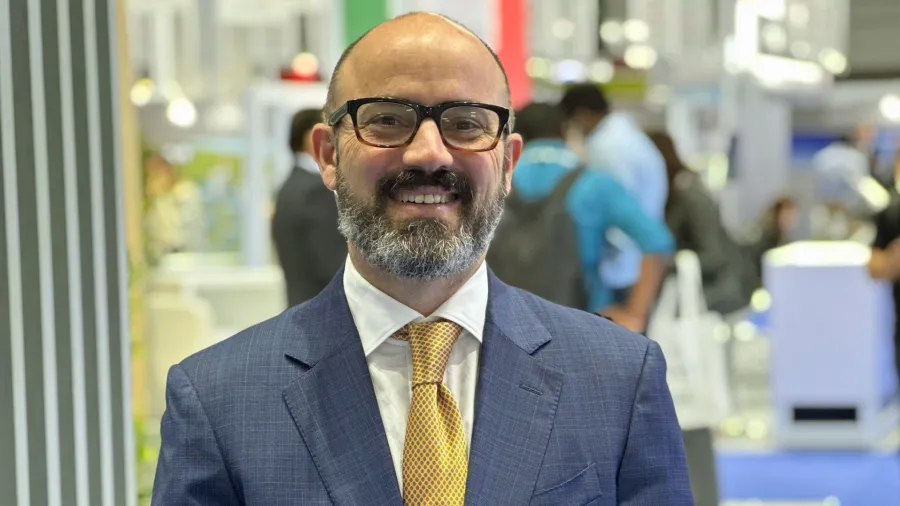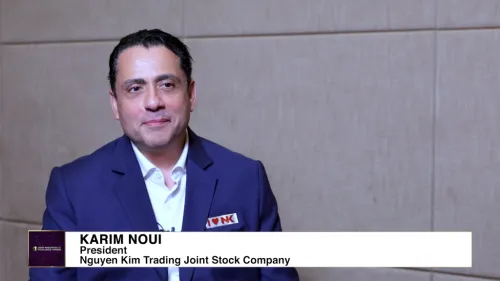
Asia needs natural gas to balance ‘energy trilemma’
Natural gas is cleaner than coal and would support the intermittency of renewables, ANGEA said.
The region’s pursuit of energy transition and security would have to take into consideration balancing the “energy trilemma” — energy affordability, reliability and sustainability. Ensuring that all three are met would entail the adoption of natural gas in the energy mix.
The Asia Natural Gas & Energy Association (ANGEA) released a study, along with Rystad Energy and in partnership with the American Petroleum Institute, on the region’s energy security which found that almost all countries in Asia would require much more energy to keep up with the economic and population growth.
ANGEA CEO Paul Everingham said this creates the trilemma where energy should be supplied affordably, reliably, and sustainably.
“The report looked at different ways in which that could take place and found that natural gas plays an important part in any of the possible solutions in meeting that energy trilemma,” he told Asian Power.
Everingham also discussed how markets in the region could balance the energy trilemma and achieve energy security.
How important is the energy trilemma in ensuring national energy security?
Every country takes energy security, energy affordability and energy sustainability very seriously, including all of the nations in the Asia Pacific. The problem with just looking at one of them is often it may harm the outcome of the other two. So, if an emerging Asian economy cannot get a form of energy affordably, then they’re not going to be able to access it, regardless of whether it’s clean or not.
At the moment, with the price of gas being high, relatively historically, because of the Russian-Ukraine situation, you’re seeing many emerging Asian countries priced out or being kept out of the natural gas market. That means their coal-fired power generation continues indefinitely until they are in a position to be able to affordably and reliably get access to a much cleaner hydrocarbon like gas. That does not help anyone in terms of sustainability, because that means those countries continue to burn coal when they could be using a fuel like gas, which is 60% cleaner compared to coal when you use it in electricity.
Why is it important to balance these factors and what are the barriers in pursuing them?
Globally, we need to be able to balance the energy trilemma: affordability, reliability and sustainability. That is because if poor or emerging nations cannot get affordable energy, then they’ll keep using whatever is affordable. At the moment, in developing nations, that is not just coal, it is wood. In Africa, some people use wood for heating their food. In countries like India, the use of wood indoors is still very high.
As for reliability, a lot of the advanced nations in the world are switching to renewable power, using wind and solar, and the problem with those is that they are intermittent. If you try to go to 100% wind and solar power anywhere in the world, then you are going to have large parts of the day where there is no electricity.
Affordability is a primary concern for emerging nations; reliability is a primary focus for developed economies; and sustainability is the third part of the equation. The entire world wants a cleaner, more sustainable energy system and lower carbon. Every country in its own different way is on a journey to a more sustainable environmental future. Some are more advanced than others but everybody's trying their best. When you add up those three, you can say that everybody wants sustainability, emerging or poorer nations have a pressing requirement for affordable energy and developed countries are in a position where they are seeking reliable energy.
What policies or measures can Asian markets adopt to balance the energy trilemma?
To encourage investment in gas and related energy assets in countries throughout Asia, a few things have to happen. One is that there has to be a stable fiscal and regulatory environment. That means an easy-to-understand and transparent tax system and a set of clear regulations, which govern the safety and the operation of the gas or energy system. There is investment required to build the relevant processing and storage infrastructure. Whether that is development finance or bank finance, it takes time and it requires detailed negotiations.
In terms of supply, countries looking to access new forms of energy, whether it be gas or renewables, need to start their preparing now, because sometimes these negotiations take years. Starting preparations and contracting commercial arrangements now, rather than waiting until you think it might be a more opportune time, means countries will be in a much better position to access energy when it is really needed. There are things that can be done right now, in our view, which would make the future much more secure for people's energy.
Let’s zoom in on Asia. Which markets are leading in terms of ensuring the energy security of their respective markets?
It is not really a race, per se. Some countries have been doing it a lot longer than others, and everyone has their own journey. This is not about saying there are winners and losers, but Japan, Korea, Taiwan, and China, have been working very hard on energy security, reliability, and more recently on sustainability for a long time, compared to say, some South and Southeast Asian nations.
If you look at countries like Indonesia, the Philippines, and Vietnam, they are very fast-growing emerging Asian powerhouses with big populations and projected high economic growth and population growth. That will mean that they need a lot more energy. At the moment they get a lot of their electricity from coal-fired power generation.
The Rystad Study shows that for those countries to be able to start the transition to a cleaner energy future they first need to be able to get natural gas. It is really not their fault that they cannot get it affordably or reliably at the moment. The report then goes on to make some recommendations about how to make it easier and more sustainable for those emerging Asian powerhouses to access gas like China was able to 20 years ago, Japan 40 years ago and Korea 40 years ago.
What could these markets do in the short term to ensure energy security?
We are working on the ground in each of these markets in Asia closely with governments, utilities and heavy emitting industries to work on solutions. Some simple building work, countries can do is to look very closely at energy efficiency across the economy, make some changes around energy efficiency, and then prepare the economy to switch from coal to gas.
That means planning now, looking at the types of gas contracts you would have, the type of gas infrastructure you would need, and the mix of renewables that partner so perfectly with gas - like wind or solar, or in the case of some countries, hydro or geothermal. These are some early things that can be done now so that in the next year, two years, five years or years when the big transition starts to take real speed, those countries will be well placed like their more advanced Asian peers, who have been working on their energy portfolios for much longer.
There are concerns about gas as a bridge fuel to the energy transition. What are your thoughts on this?
There are some people and activist groups that would like emerging economies to go straight from coal- and diesel-fired power to renewables. I am sure it is well-meaning, but it is poorly understood. Wind and solar are not present 24 hours a day. There simply is no technology to make that happen yet. There might be in the future, but there is none today. The all-renewables viewpoint is basically asking people to go without electricity for half their day. If you live in Asia, particularly Southeast Asia, you are basically saying to people, “You can live without air conditioning and electricity for half your day, because it will make us feel better in the West that we are not emitting so much.” This is unhelpful for the wellbeing of populations and economies.
Gas is the obvious choice in countries that have large portfolios of secure, reliable and sustainable energy mixes. When you look at Japan, Germany, China, Australia and the United States, you will see that gas is a big part of all of their energy systems, but they also have wind and they also have solar. Wind and solar are impossible without a baseload fuel and the most affordable and sustainable baseload fuel that is available to most of these economies is gas.
It's also worth noting that we are talking about responsible and sustainable production and use of gas. The way we have historically produced and used natural gas won’t be the way we do it in the future. Carbon capture and storage (CCS) is proven and rapidly developing technology that has been identified by the IEA and IPCC as an essential tool to reduce emissions and accelerate the global pathway to net zero. There is still work to be done ensuring CCS is cost-effective at scale and developing regional frameworks required to support it, but those things will happen.
I expect at-scale CCS may initially be deployed in developed economies, which will then support its rollout in emerging nations. In 10 years’ time, CCS won’t be the object of curiosity that it is now for many people, it will be part of our everyday lives. And that means CCS being used in gas production, at gas-fired electricity plants and to reduce emissions from heavy industry right throughout Asia.
















 Advertise
Advertise







